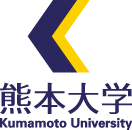スタッフ
| 教授 | 神波 大己 kamba(アットマーク)kumamoto-u.ac.jp |
|---|---|
| 講師 | 矢津田 旬ニ |
| 助教 | 穴見 俊樹 |
| 助教 | 倉橋 竜磨 |
研究テーマ
【研究プロジェクト名および概要】
我々の講座では、泌尿器悪性腫瘍の発癌や治療抵抗性獲得に関わる機構の解明や、新規治療戦略の開発を主眼においた臨床的、基礎的研究を行っています。具体的には以下の通りです。 腎癌発癌機構の解明では、血管新生を促進する蛋白としてアンジオポエチン様因子(ANGPTL: Angiopoietin-like protein)ファミリーに注目しており、特に血管細胞や単球細胞に作用すると言われているANGPTL2が癌進展に与える影響についてマウスを用いて解析を行っています。
また、発がん機構解明の手段としてCRISPR Cas9 systemによるgenome wide screeningを確立しました。これを用いてXp11.2転座型腎癌の発がんに、転写を制御するmediator complexが深く関係している事を発見し、現在そのメカニズムについて更なる解析を行っています。
新規治療戦略のひとつとして、所属リンパ節マクロファージを介した腫瘍免疫の賦活化に注目しています。膀胱癌皮下腫瘍移植モデルマウスにマクロファージを活性化する天然化合物を投与し、腫瘍免疫による治療効果が得られるか実験を進めています。
当講座では臨床検体を用いた研究もおこなっています。泌尿器科癌においても免疫チェックポイント阻害薬が優れた治療効果を示しています。しかし、全く奏功しない症例や、重度な副作用を生じる症例が存在します。そこで、新しい細胞蛋白質発現解析ツールとして注目されているCyTOF2を用いて、ヒトにおける治療効果や副作用出現の予測に繋がる未知の細胞集団の同定を試みています。
当科は、日常臨床を通じて医師としての知識の習得、外科医としての技術の習得を目指していますが、同時に科学者としての視点も大切にしており、研究と向きあう姿勢が日々の診療で遭遇する疑問の解決に大いに役立つものと考えています。
We conduct clinical and basic research with the aim of elucidating the mechanisms related to carcinogenesis and treatment-resistance acquisition of urological malignancies and development of novel therapeutic strategies. We are conducting research specifically described below.
We focus on the angiopoietin-like factor (ANGPTL: Angiopoietin-like protein) family as a protein that promotes angiogenesis, especially ANGPTL2 which acts on vascular cells and monocyte cells. We are investigating the effects of ANGPTL2 on cancer development using mice to elucidate the mechanism of carcinogenesis of renal cell carcinoma.
We have also established genome wide screening using the CRISPR Cas9 system as another approach to elucidate the mechanism of carcinogenesis. Using this method, we found that the mediator complex, which regulates transcription, is significantly involved in the carcinogenesis of Xp11.2 translocation renal carcinoma, and we are analyzing the mechanism of carcinogenesis further.
As a new therapeutic strategy, we are focusing on the activation of tumor immunity via lymph node macrophages. We are currently conducting experiments to evaluate the therapeutic effect of tumor immunity by administering a macrophage activating natural compound to a bladder cancer-xenograft mouse model.
We are also conducting research using clinical specimens. Immune checkpoint inhibitors have become available for the treatment of urologic cancer and have shown excellent therapeutic effects. However, there are cases with no response or severe side effects. Therefore, we are attempting to identify unknown cell populations that can predict therapeutic efficacy and side effects in humans using CyTOF2, which is a new tool for cellular protein expression analysis.
Our department aims to acquire knowledge as a physician and skills as a surgeon through daily clinical practice. At the same time, we value the viewpoint as a scientist. We believe that such research minds will be of great help to resolve many clinical questions which we encounter in daily practice.

